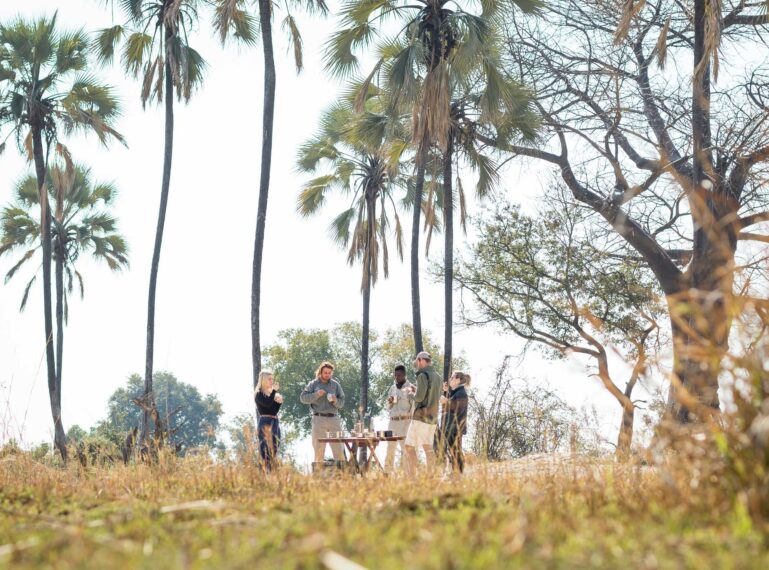
Thinking about an Okavango Delta safari but have some FAQs before embarking on this journey of a lifetime? Don’t worry, our team is here to assist! The Okavango Delta is a UNESCO World Heritage Site sprawling across the remote and pristine Kalahari basin of Botswana; and is one of the most coveted safari destinations in Africa. Planning for this safari isn’t a last-minute affair; it requires careful preparation. Our crown jewel in the Okavango Delta is Mboma Island Expeditions, offering a magical experience for adventurous souls seeking both land and water-based safari experiences.
To help you plan your journey, we’ve scoured the web for 10 of the best and most popular Okavango Delta safari FAQs.
Where is the Okavango Delta and how was it formed?
The Okavango Delta is the world’s largest inland delta (alluvial fan) located in the western region of Botswana, sprawling across 16,000 sq. km of land—it was formed an estimated 60,000 years ago. The source of the Okavango Delta sits in the Angolan Highlands, home to numerous smaller tributaries (principally Cuito and Cubango) that converge on Angola’s border to form the Okavango River. Tectonic plate movement stopped the flowing, causing the mass of water to drain into the landscape.
Comprising swamps, lagoons, seasonally flooded grasslands, riparian forest and woodlands, this UNESCO World Heritage Site is a must-visit. Instead of flowing into the sea, this inland delta’s waters are soaked up by the arid desert sands of the Kalahari Basin. The landscapes shifts during the seasons, making it one of the most ecologically diverse areas in Africa. It is the ultimate oasis offering the best of both land and water based game viewing.
Known as the gateway to the Okavango Delta, Maun is the closest international airport. From here they either arrange a smaller charter flight to their camp/lodge that lands at a small bushveld airstrip, road transfer or boat transfer. Most Okavango camps and lodges are remote, requiring either a combination of flying and boating or a road transfer followed by boating, especially if you’re staying on one of the islands.
Click here to find out how you would get to Mboma Island Expeditions
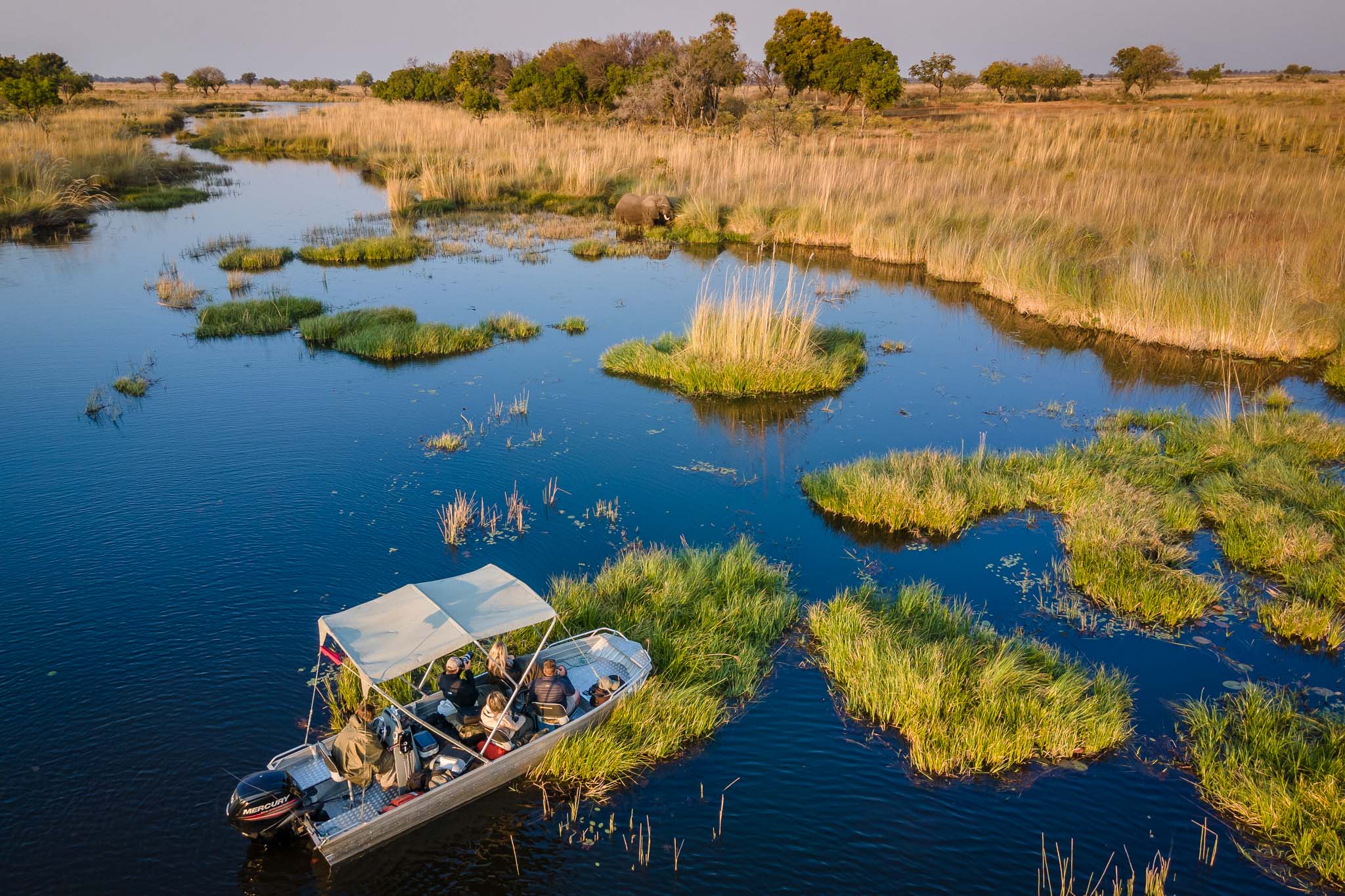 Can I do game drives in the Okavango Delta?
Can I do game drives in the Okavango Delta?
Yes. The area is quite aquatic nature, which is why only the experienced conduct their own self-drives. Most guests go on guided game drives with their camp/lodge, which usually traverse their own private concessions and regions within the Moremi Game Reserve. The Moremi is where Mboma Island Expeditions conducts their game drives.
Is the Okavango Delta expensive?
Yes, but for good reason. It’s remote, secluded, pristine and completely uncrowded. Botswana has a low impact high cost model, where there’s a limit to the number of guests and camps within areas; ensuring the Okavango Delta remains pristine.
The most affordable and immersive way of experiencing the Delta is to opt for a luxury glamping mobile safari like Mboma Island Expeditions.
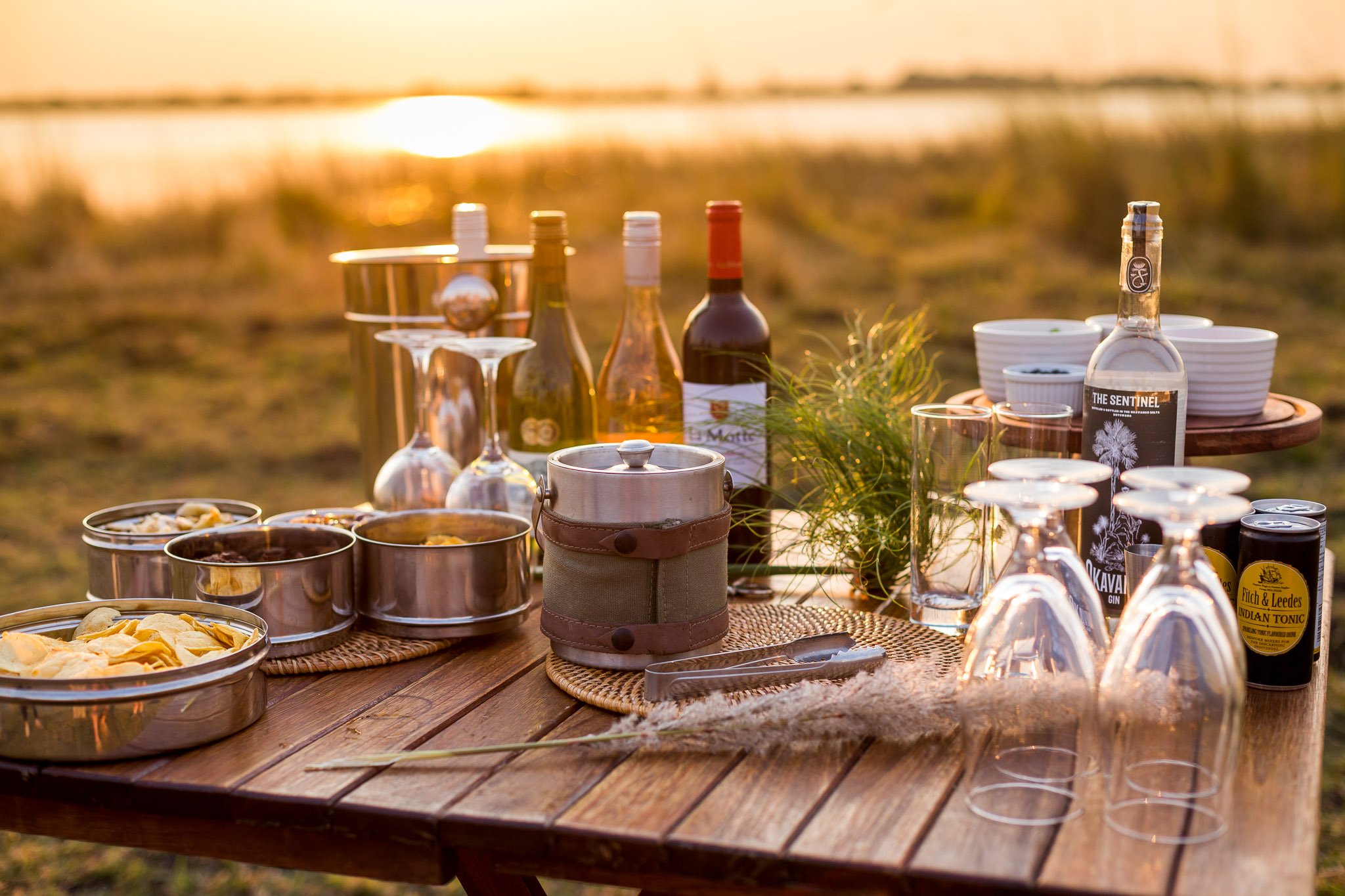
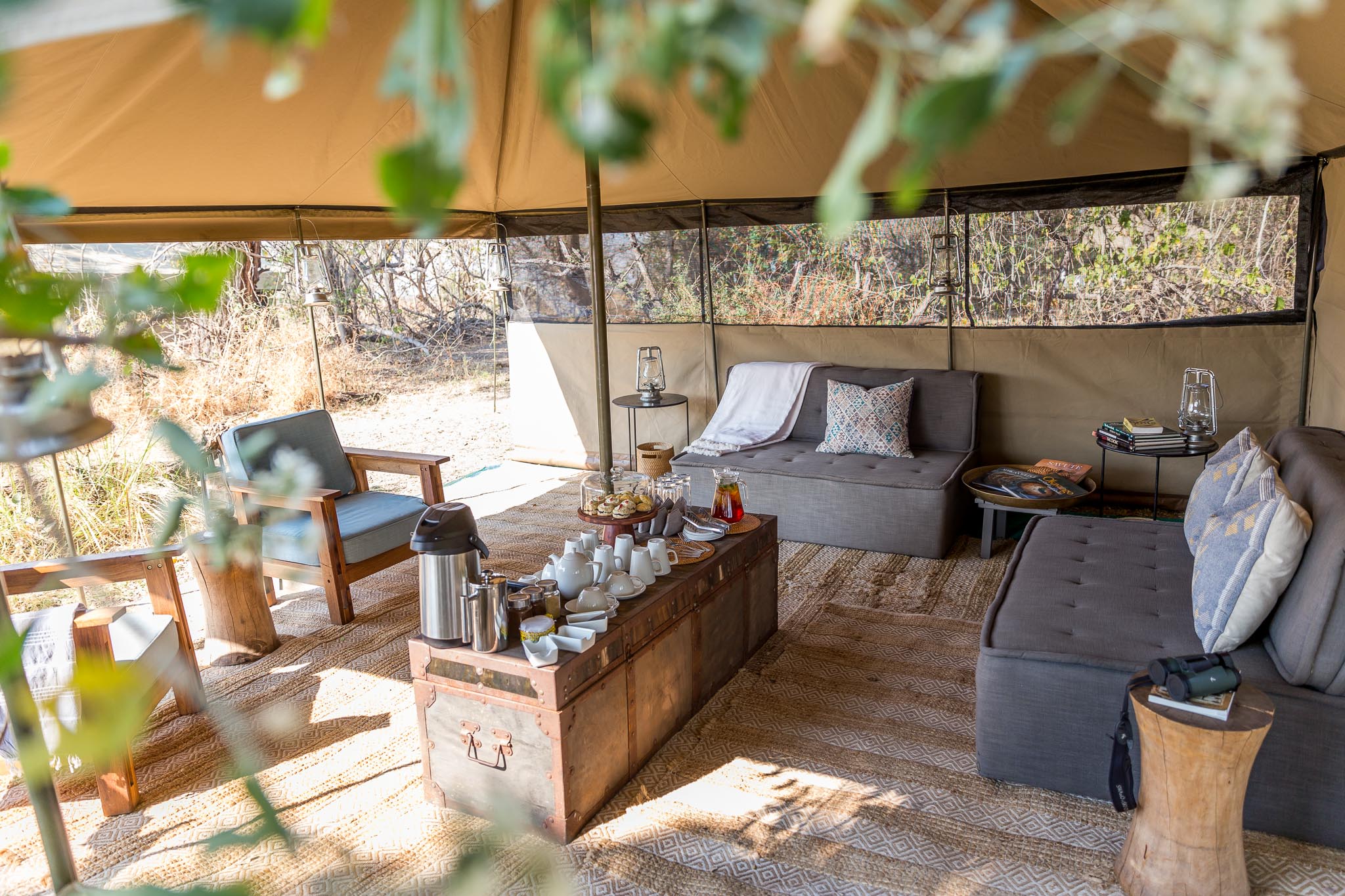 What is the best time of year for an Okavango Delta safari?
What is the best time of year for an Okavango Delta safari?
Typically, the Delta has three distinct seasons: low, green and peak season. Peak season is from June to October. This is when the rains subside and the channels/lagoons are full – and it’s easier to spot wildlife. December to March is low season, where you’ll experience lush landscapes and incredible birding. It’s also the season to see the zebra migration. Green or shoulder season is when wildlife like impala and other antelope give birth.
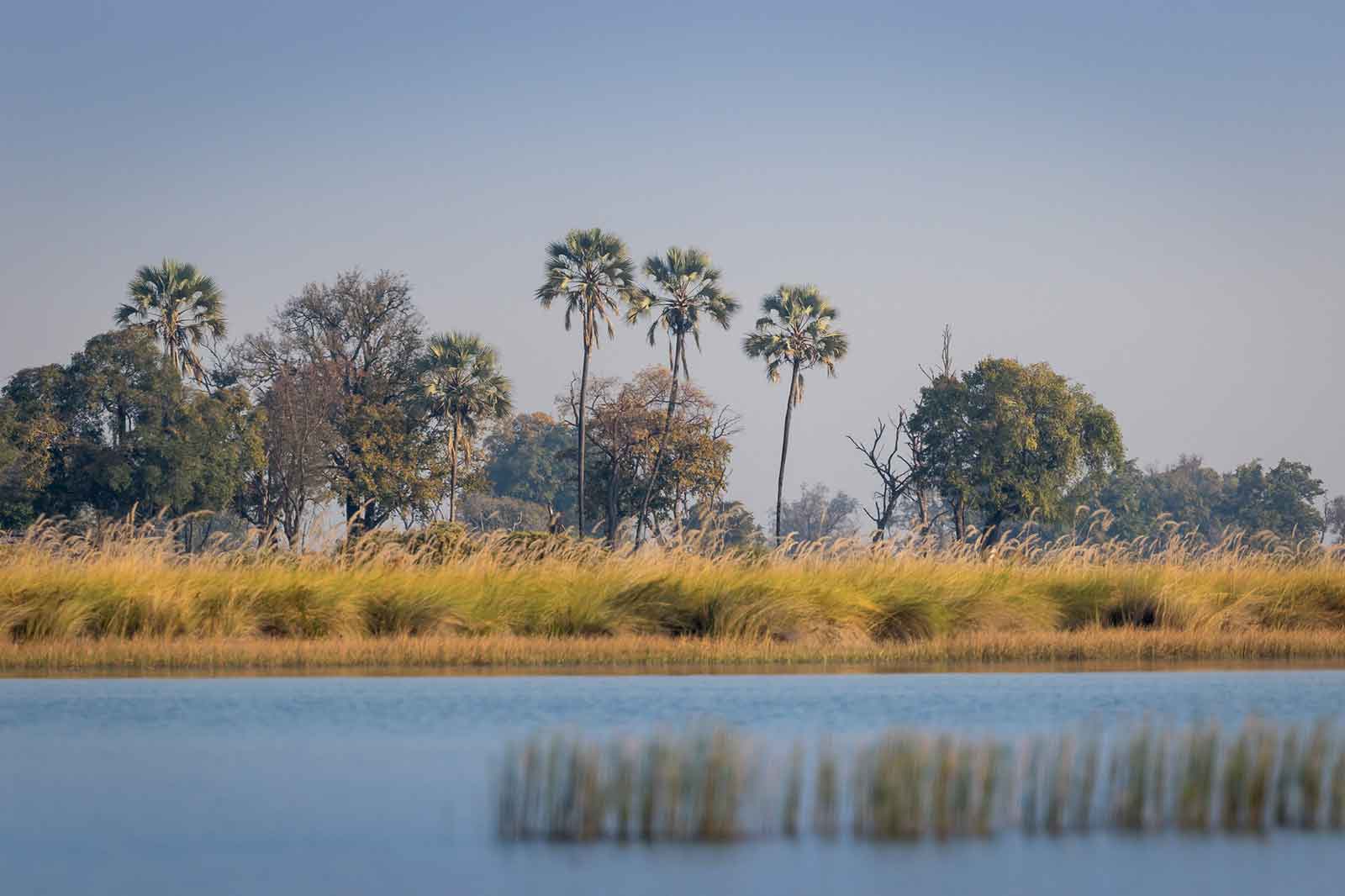 What wildlife can I see in the Okavango Delta?
What wildlife can I see in the Okavango Delta?
Red lechwe, sitatunga, slaty egret, puku and African open bill are just a few of the rarities to look out for while in the Okavango Delta. There are 500 species of bird, over 80 species of fish, 160 mammal species – including a wealth of big cats. The Okavango Delta boasts high concentrations of wildlife, in particular elephants.
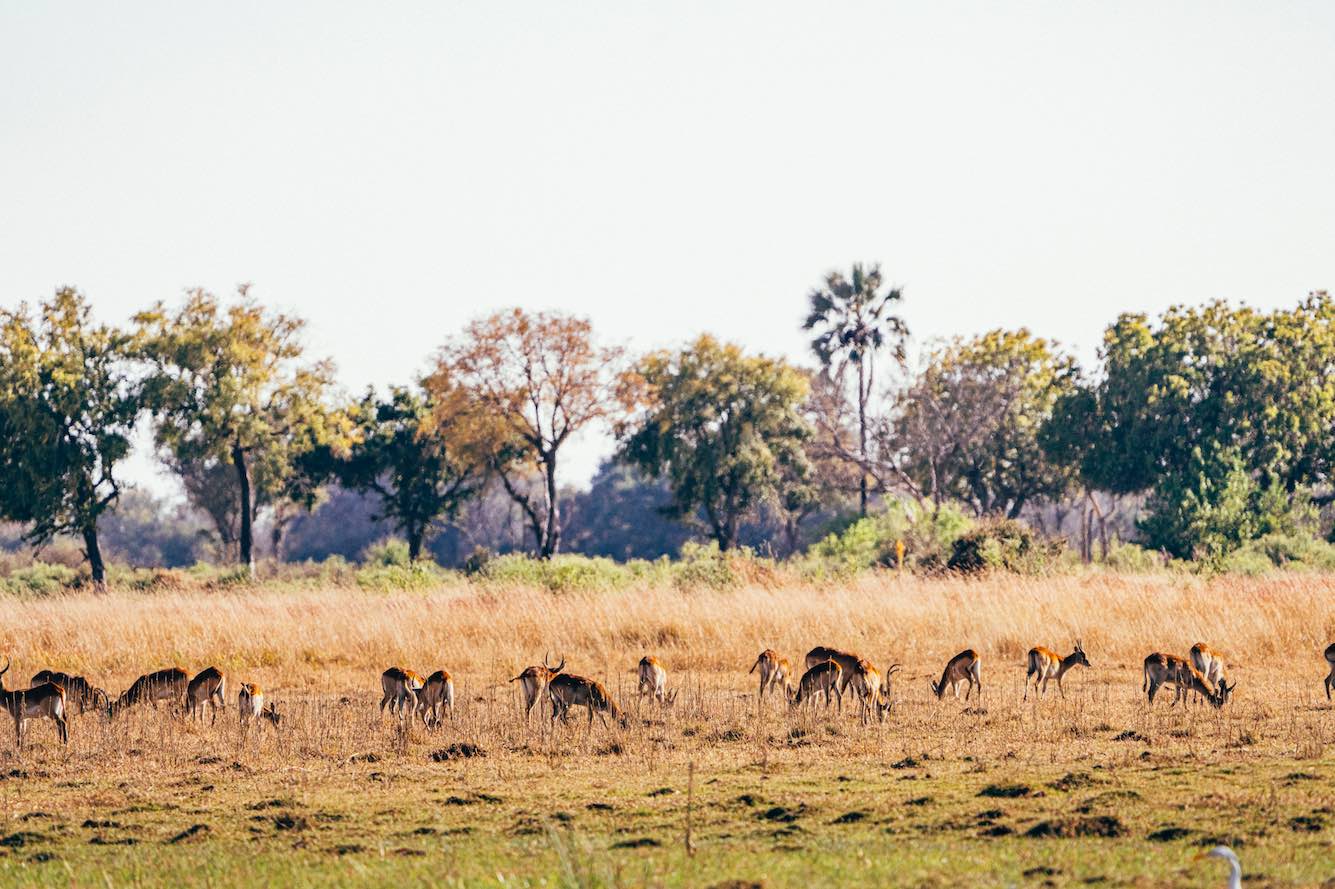
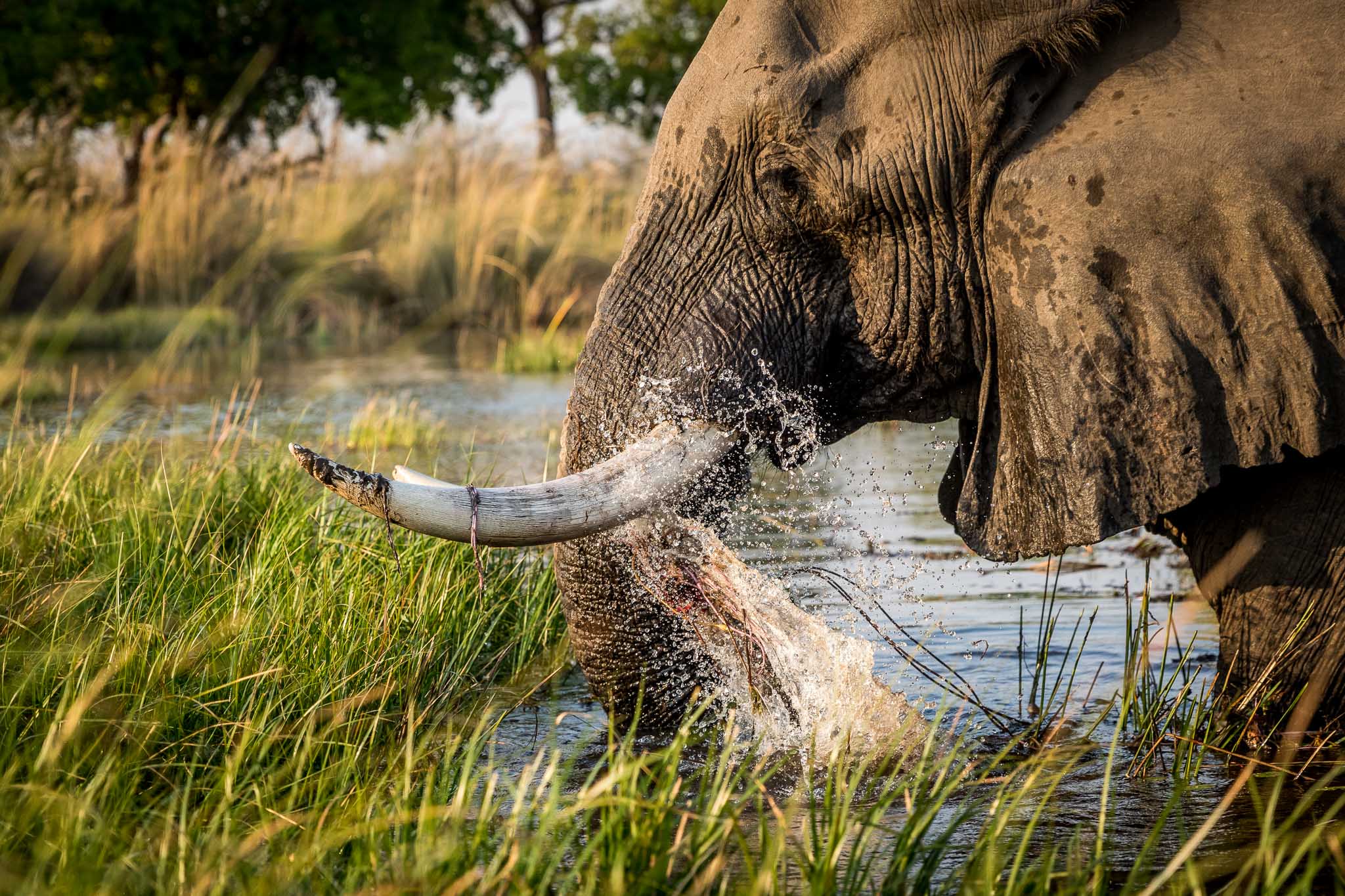
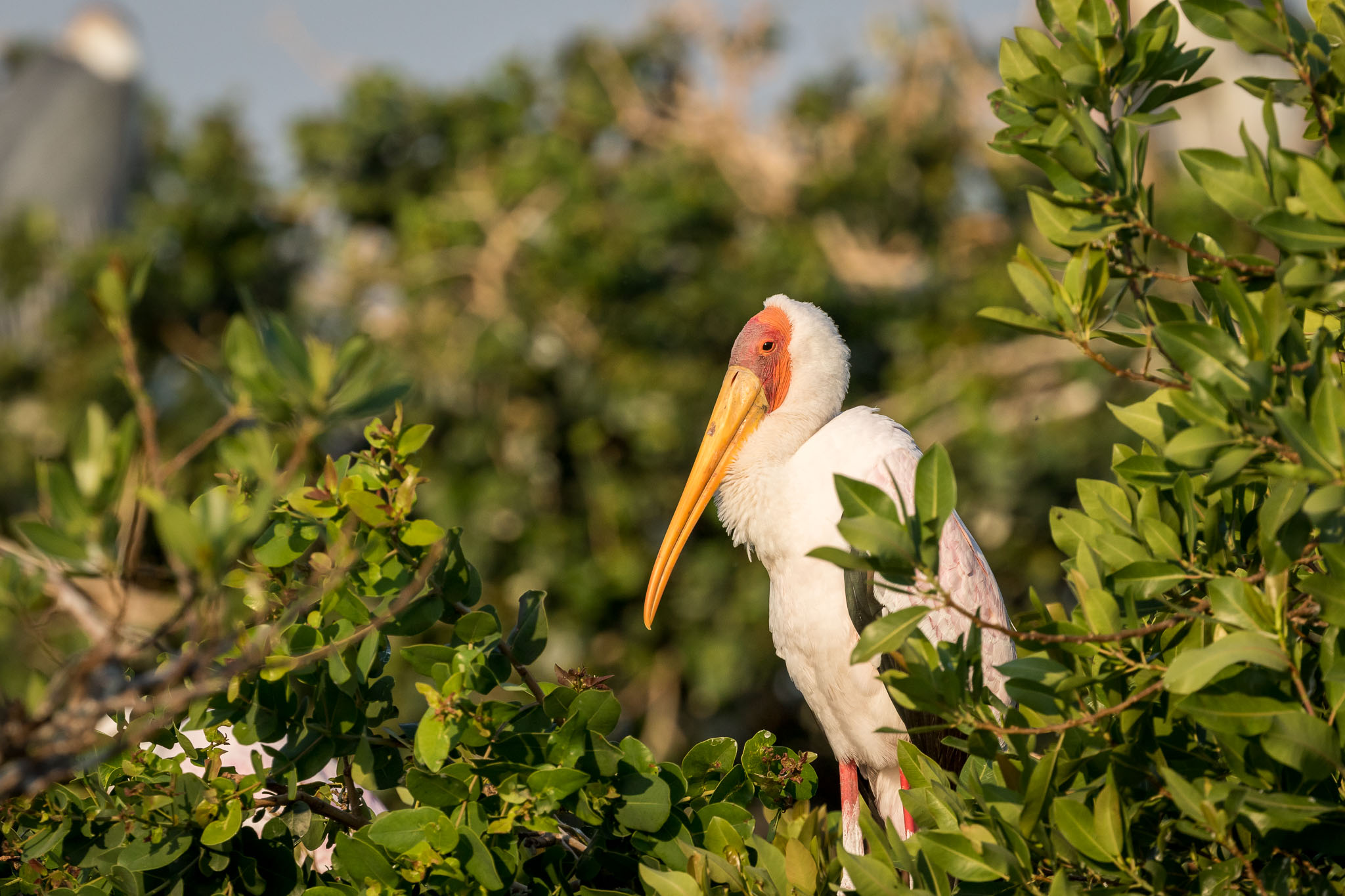
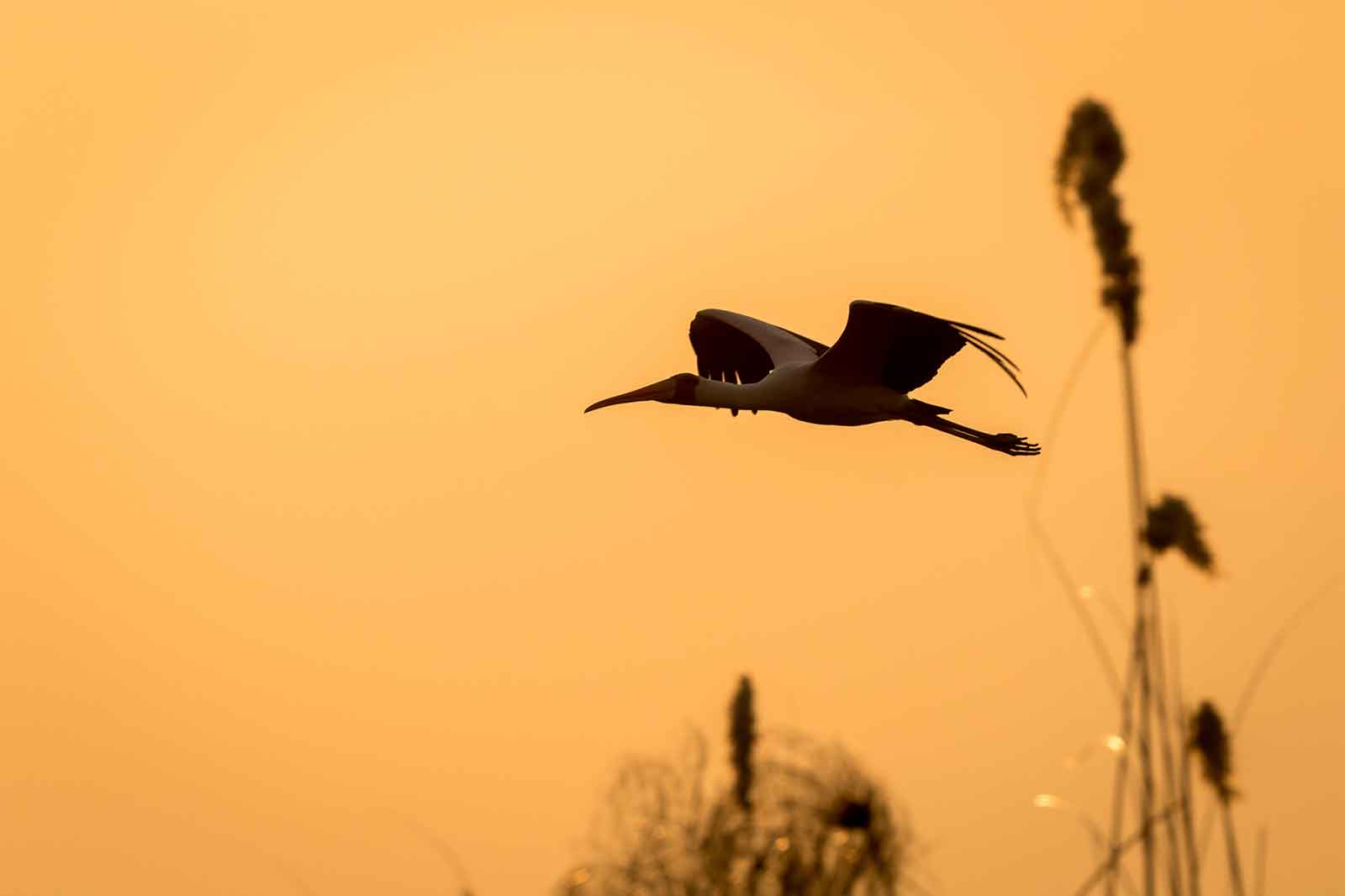 What is the weather like in the Okavango Delta?
What is the weather like in the Okavango Delta?
It depends on the season. Summers are extremely hot and humid, while winters can be cold. Mornings are usually crisp, and it gets hot during the day. While boating, you’ll feel the cold breeze off the water, so pack warm clothes. Generally, you can expect a warm/hot climate year-round.
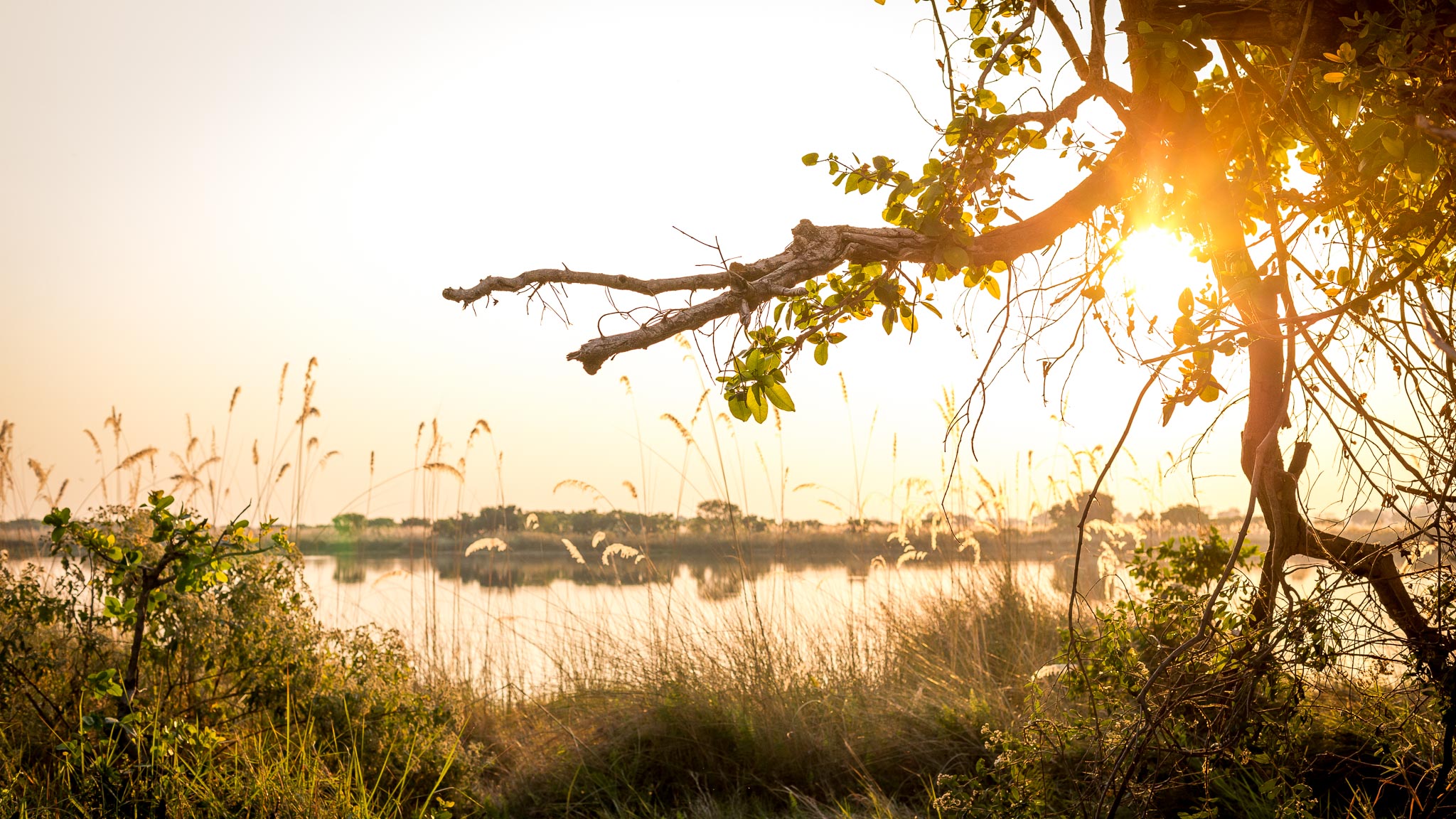 What accommodations are available in the Okavango Delta?
What accommodations are available in the Okavango Delta?
From high end to classic camps and mobile camps, the Okavango Delta offers a range of accommodations, most of which have a minimal impact on the environment. Mboma Island Expeditions is a mobile safari camp with expansive Meru-style tents, kitted out with all the creature comforts of home. The entire camp is set-up just before guests arrive.
How far in advance do I need to book my safari to the Okavango Delta?
Because Mboma Island Expeditions is an eco-aware, mobile camp with a small number of guests and is closed from December to March, you’ll need to book in advance.
A mokoro is an ancient mode of water transport that takes the shape of a canoe. In days gone by, a traditional mokoro was carved out of a Kigelia (sausage tree) or Ebony tree trunk. These vessels were used to carry goods across narrow channels and waterways by poling slowly through the waters (was this the start of stand-up paddle boarding??!). To conserve the trees, modern mokoros are made from fibreglass and other materials.
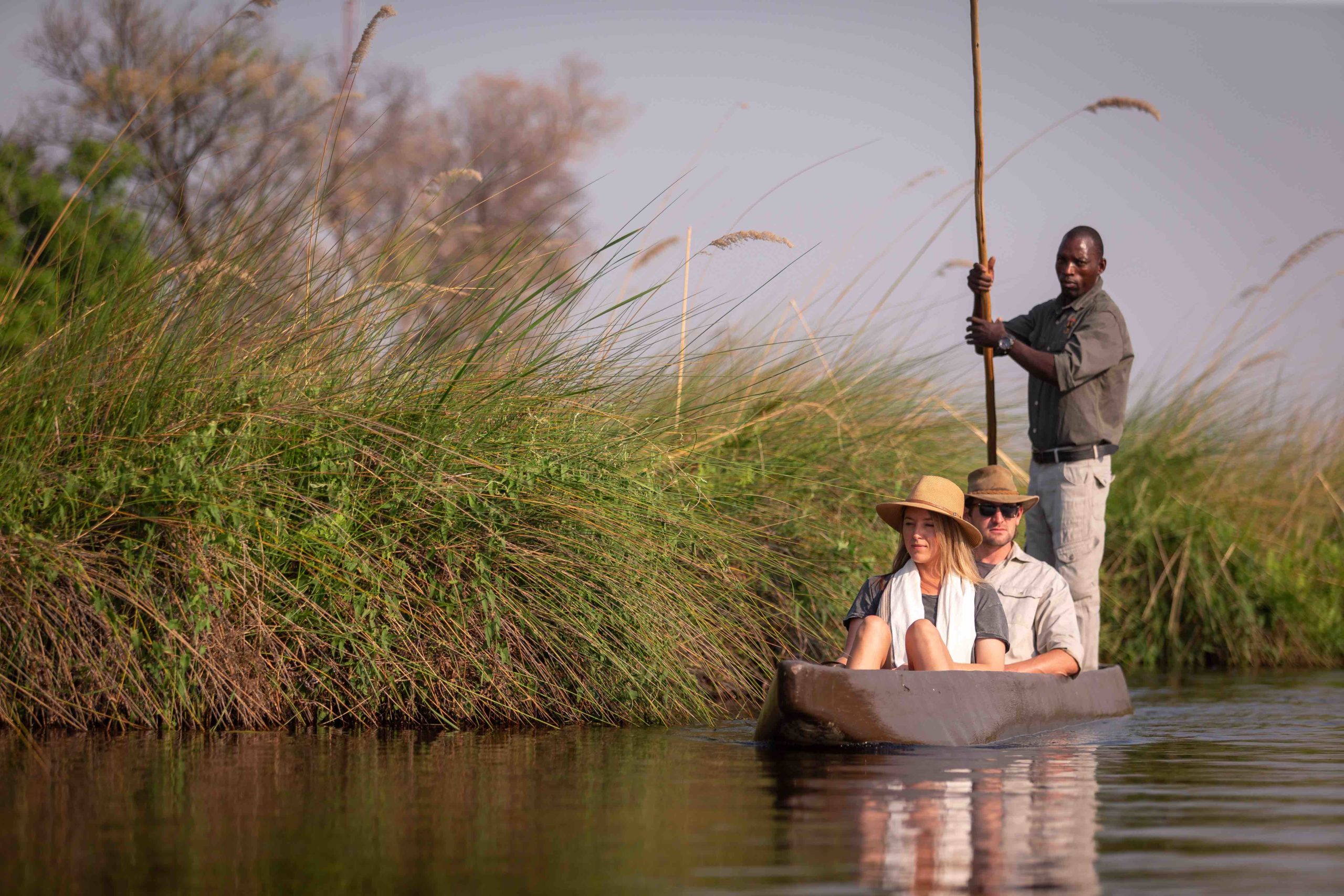 We can arrange other camps as add-ons to Mboma, that form part of carefully curated Botswana itineraries.
We can arrange other camps as add-ons to Mboma, that form part of carefully curated Botswana itineraries.
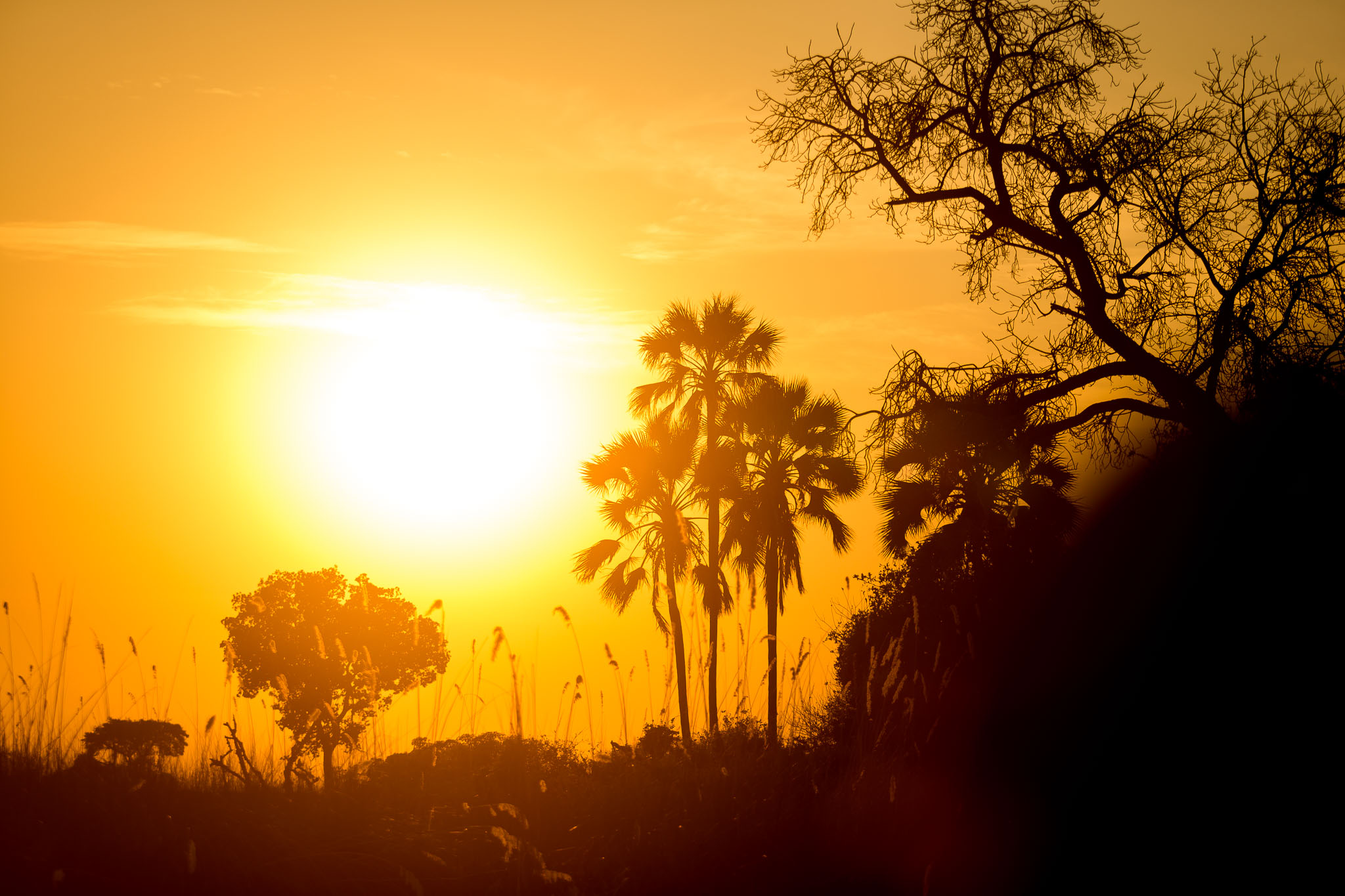
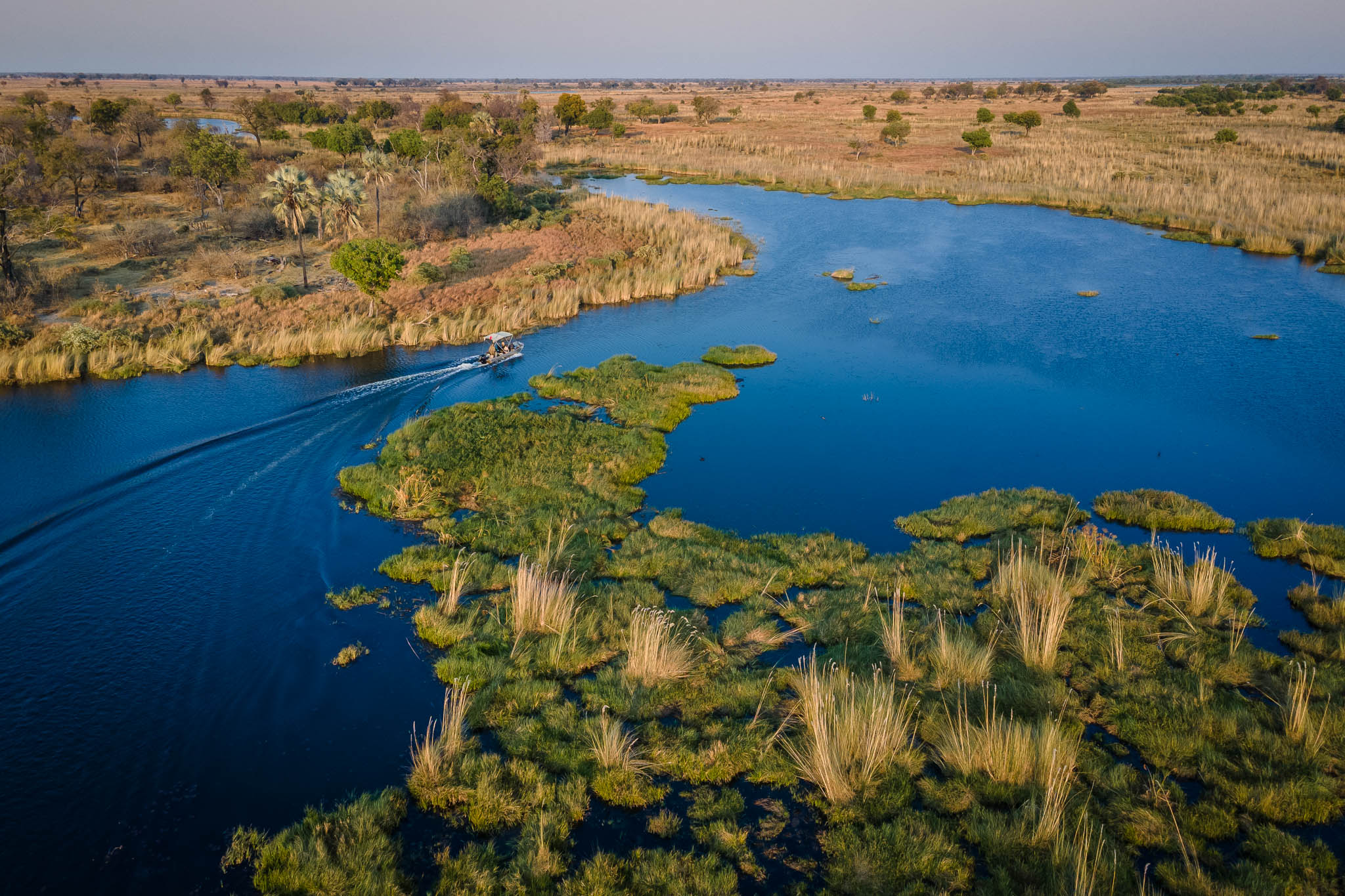
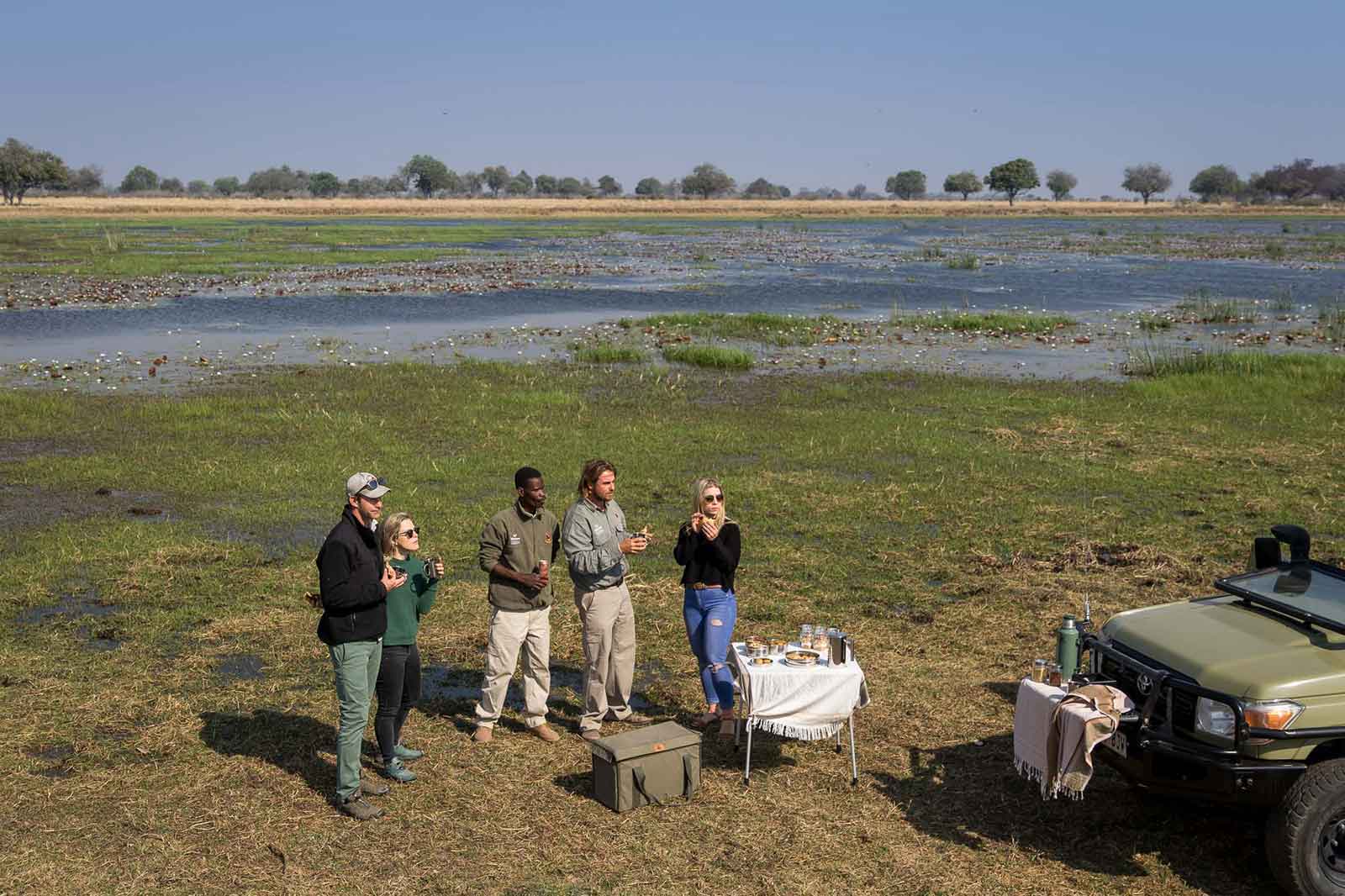
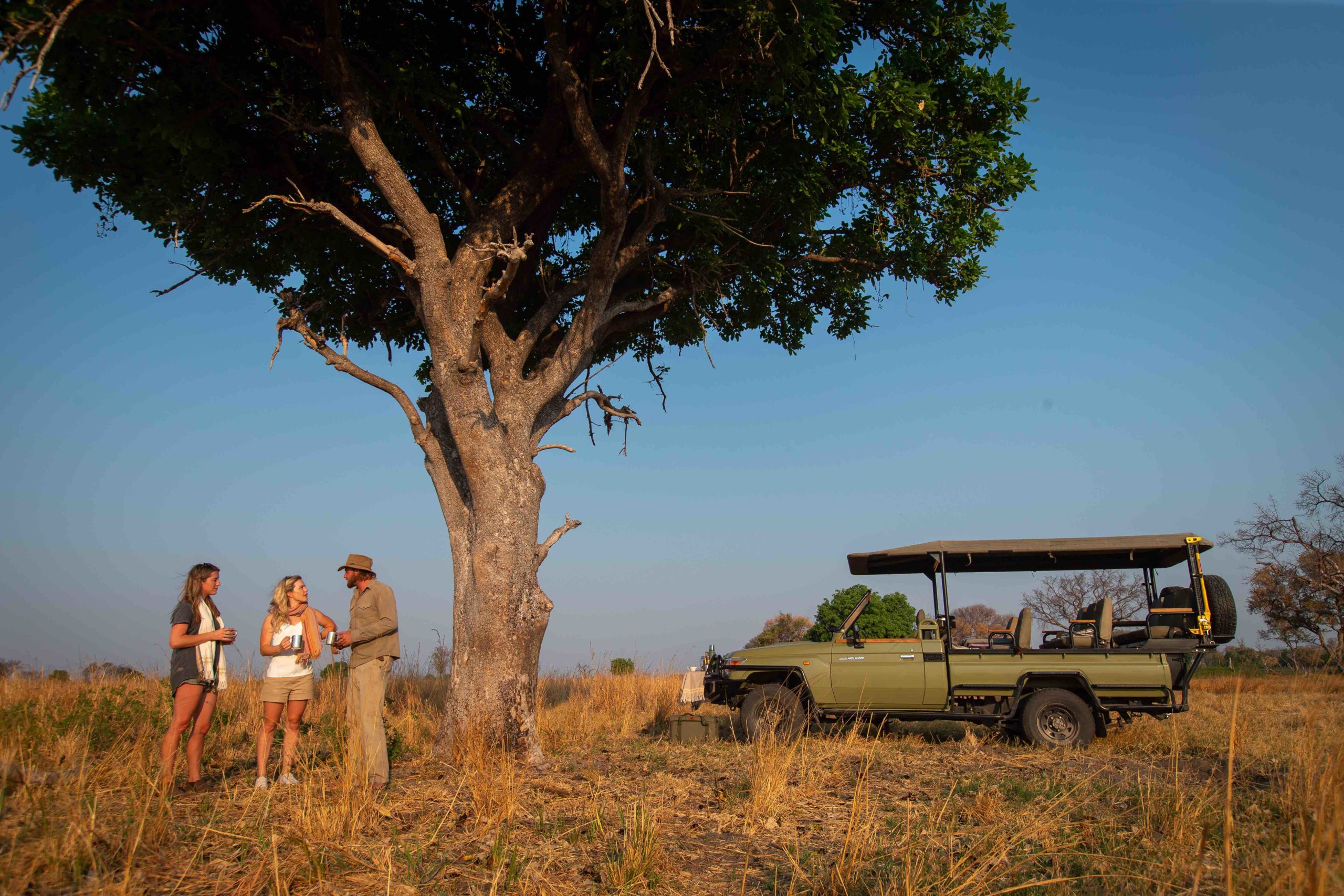
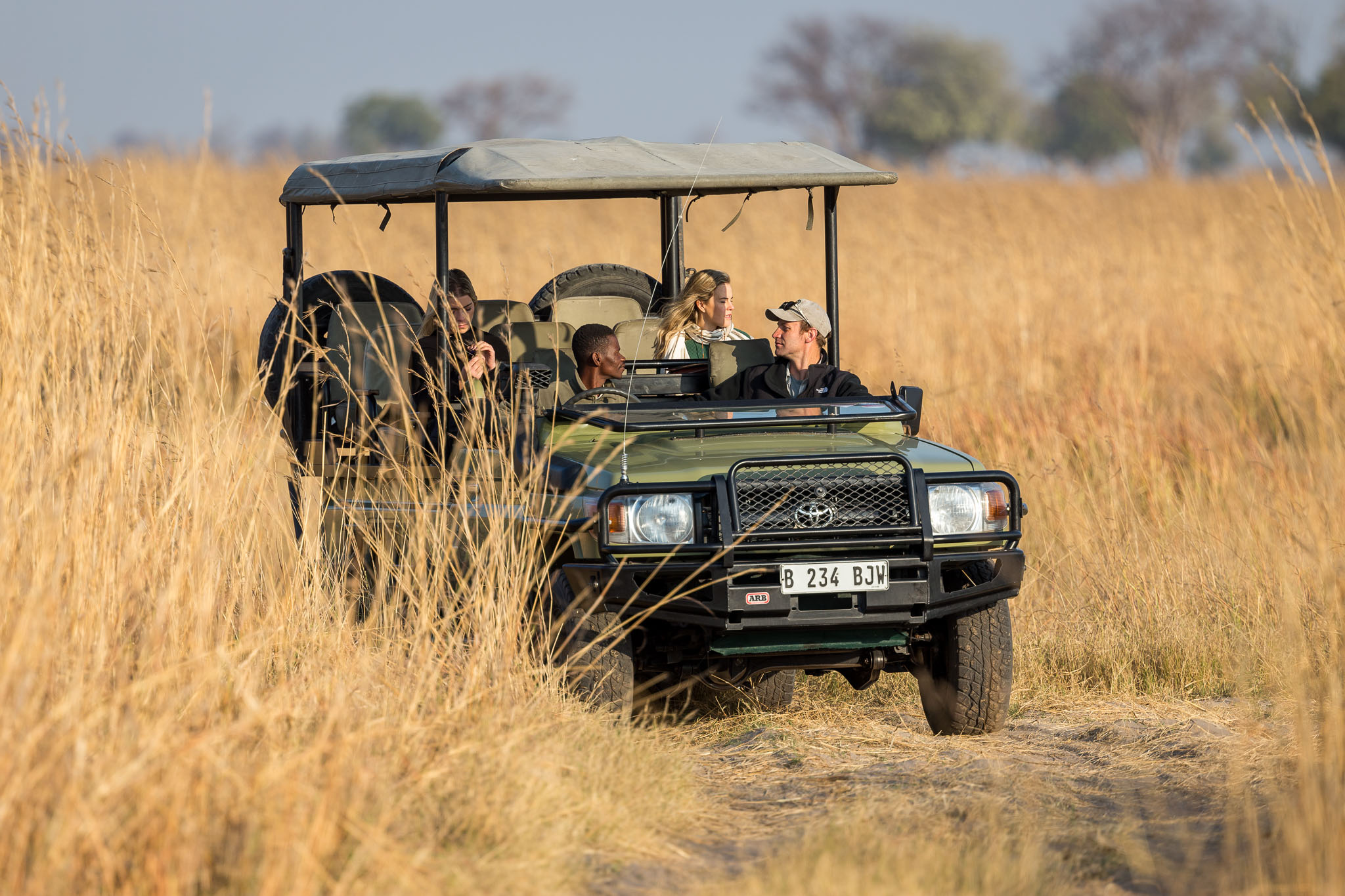
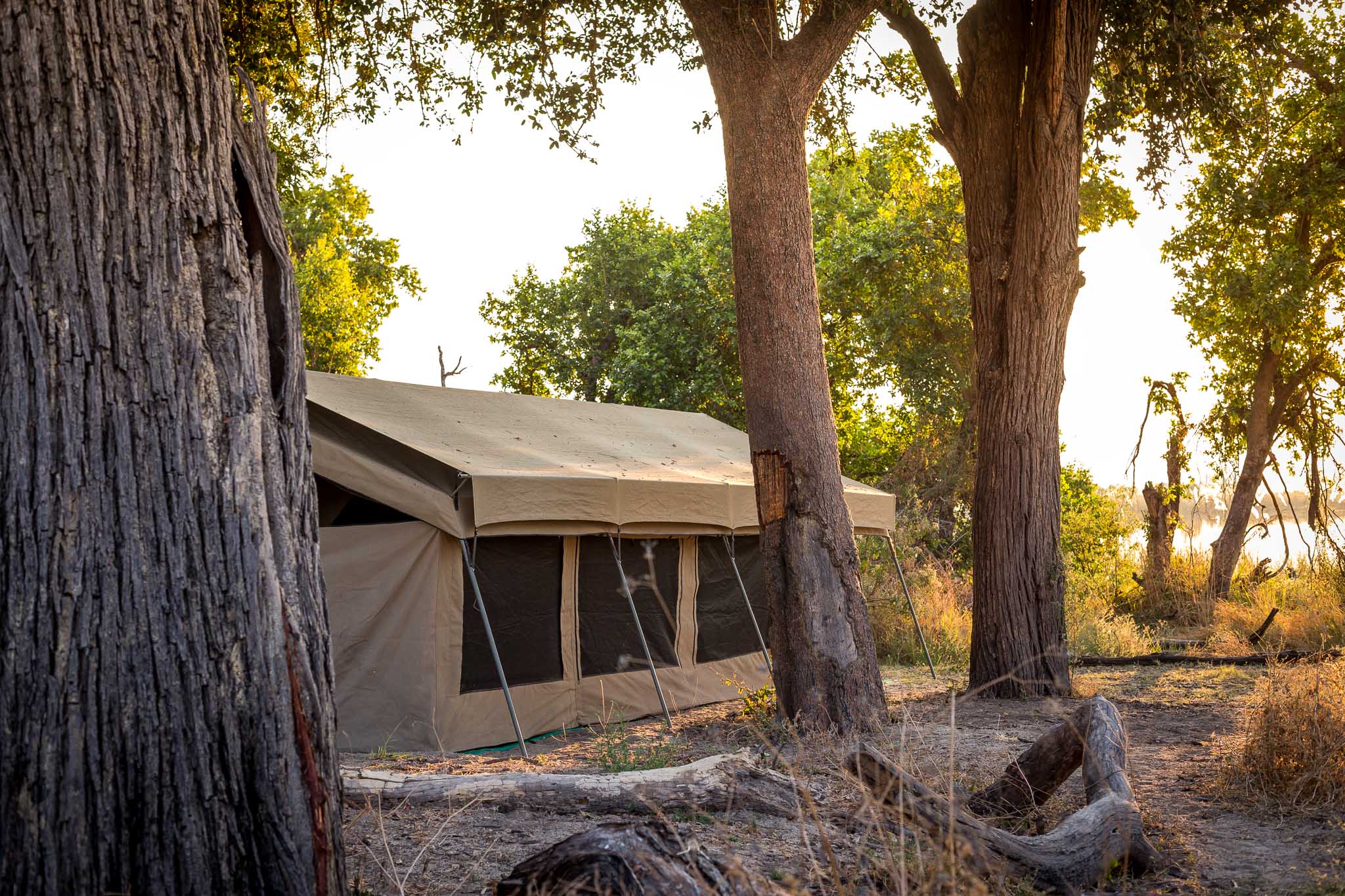
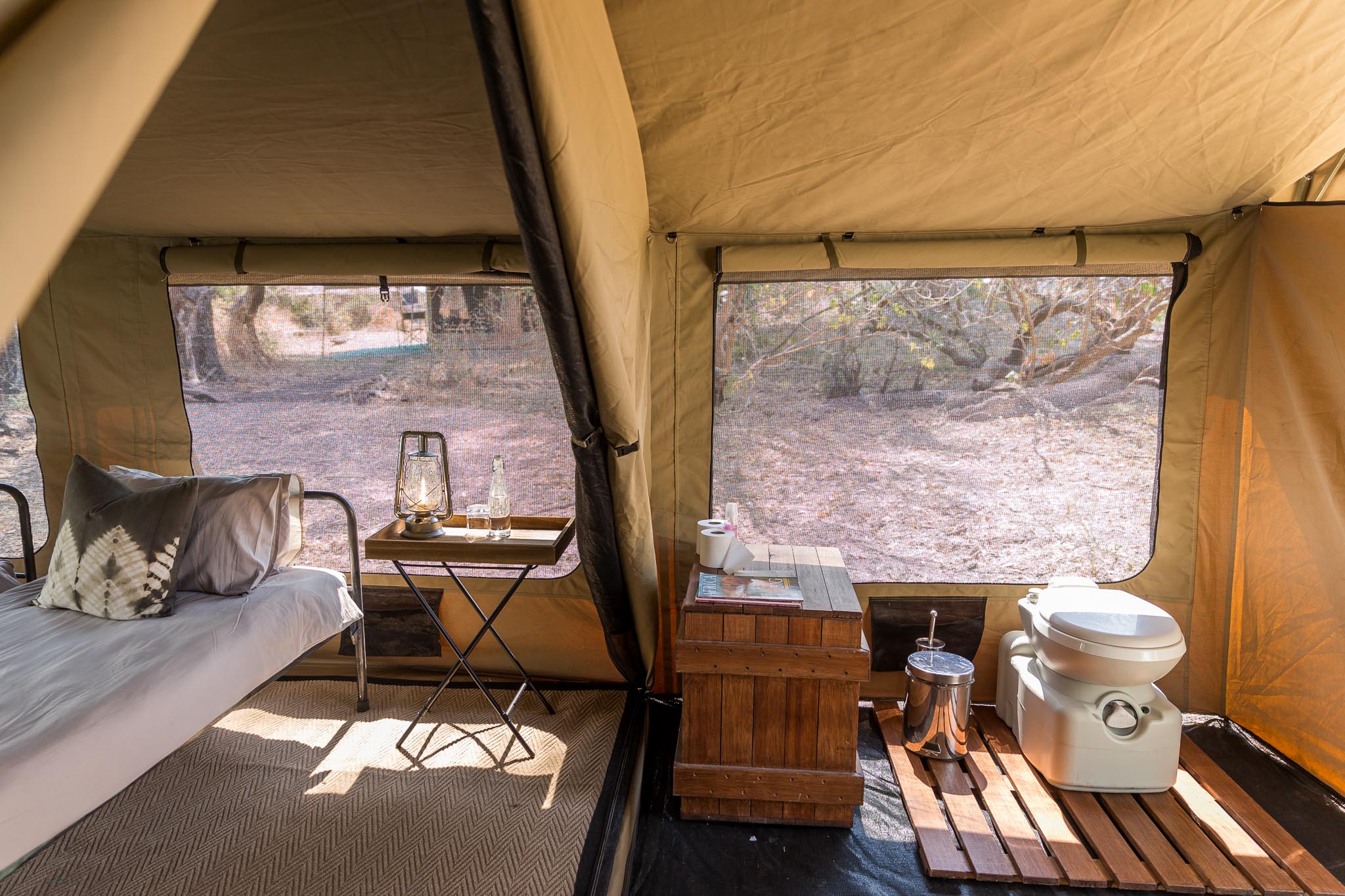
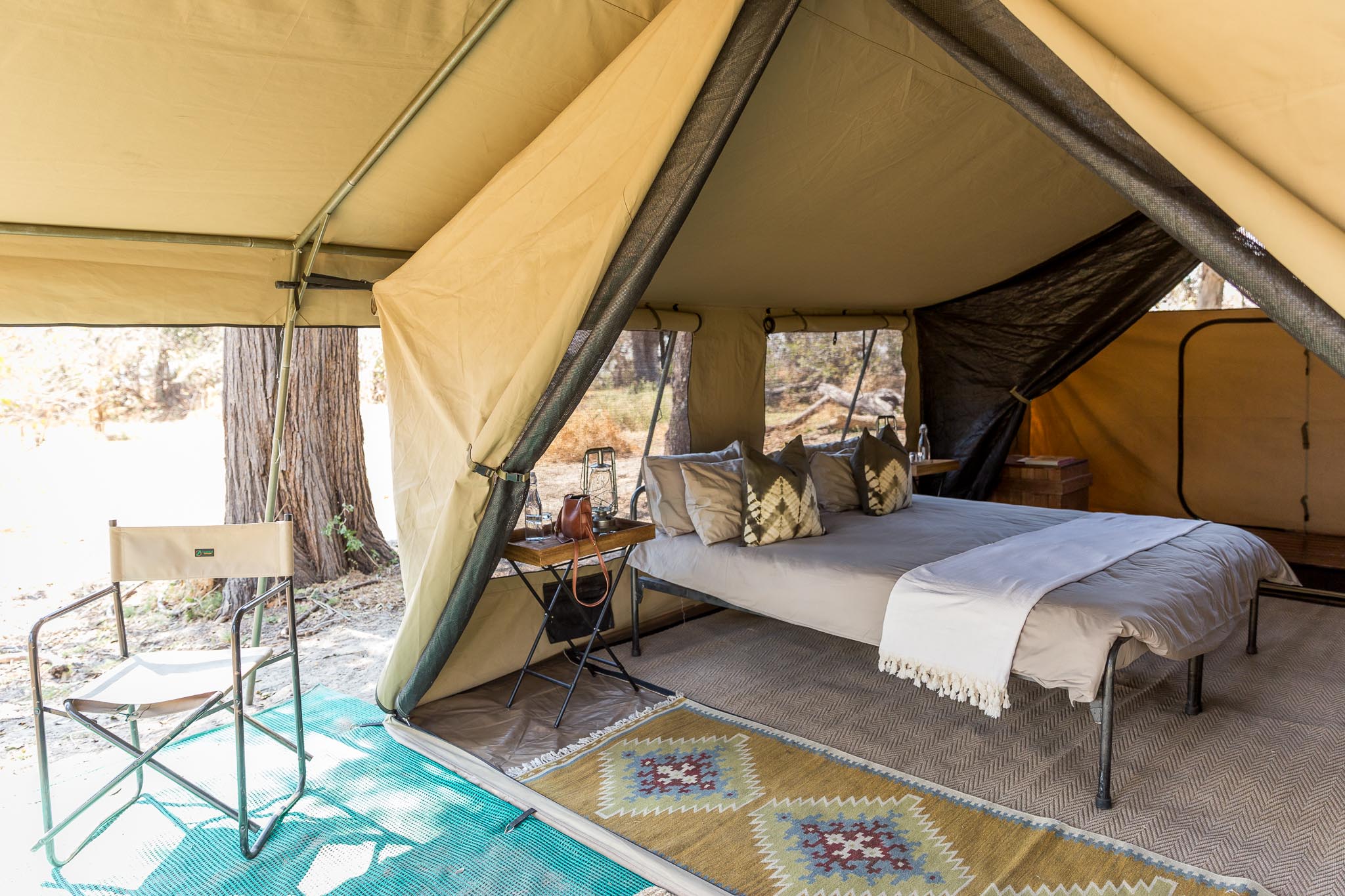
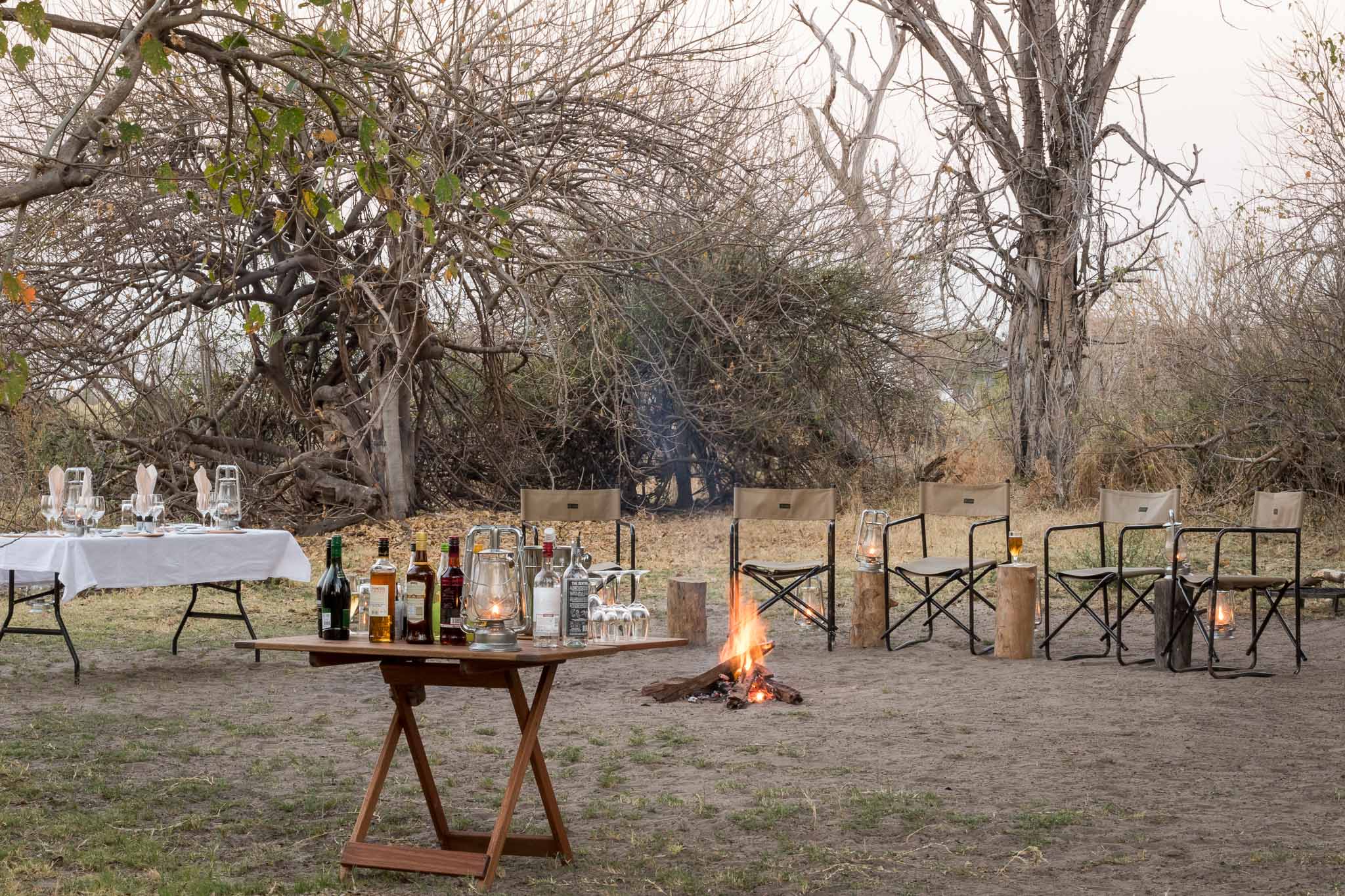
Leave a Comment